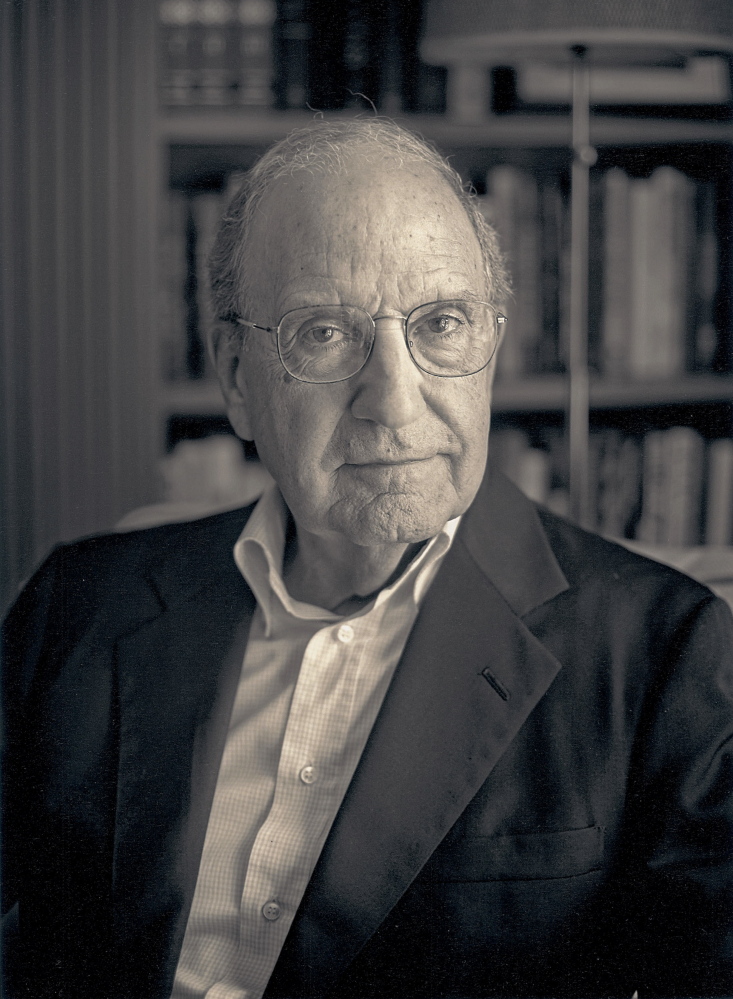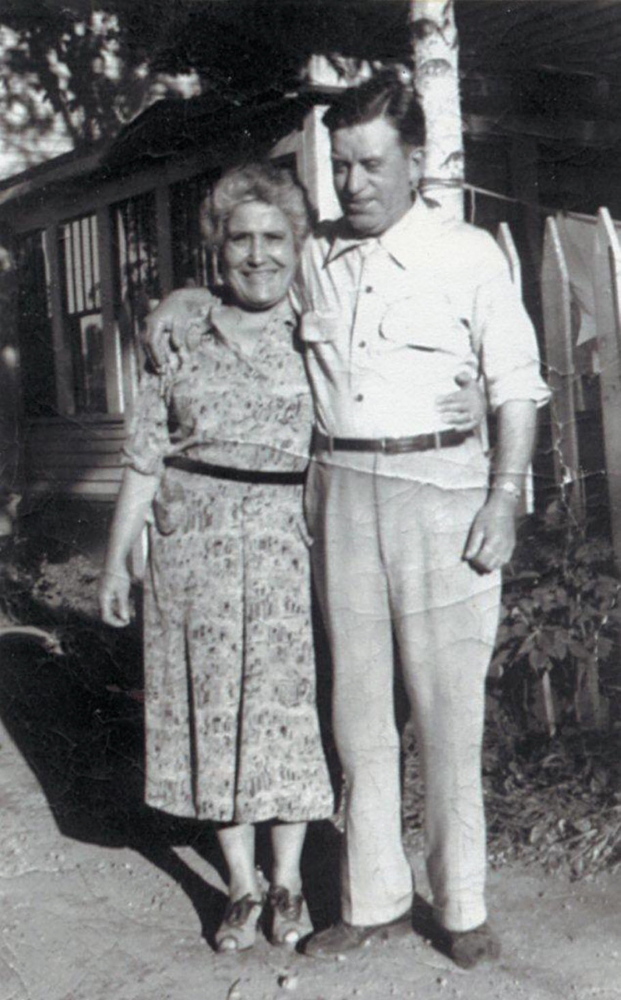George Mitchell devotes a chapter in his new memoir, “The Negotiator,” to the eastern Maine town of Talmadge, population 64.
Mitchell, the former U.S. senator from Waterville, has gained worldwide fame in the past two decades for his ability to find compromise and common sense in the midst of some desperate situations and places. Hot spots and hot topics he’s been called on to cool down include Northern Ireland, the Middle East and baseball’s steroids scandal.
But when he went to Talmadge in December 1988, neither Mitchell nor the town were in dire straights. Mitchell had just won a landslide re-election to the Senate, but had noticed the only Maine voting precinct he didn’t win was in Talmadge. So he decided to go there and find out why.
Mitchell addressed a crowd gathered at a small church, and found out quickly he had lost the town because many voters there were staunchly opposed to abortion, while Mitchell supported abortion rights legislation. Still, after explaining his position and discussing other issues, he was thanked warmly by many for coming out and listening. He even got a firm handshake and a smile from a man who had earlier shouted that Mitchell and other politicians not opposing all abortions were “pimps and prostitutes.”
“That was a very nice day for me,” said Mitchell, 81, during a phone interview in April. “As a public official, you meet thousands of people, and a lot of it is superficial and people can recognize that. But if people feel that someone is genuinely listening to them, it can make a very big difference.”
The chapter on Mitchell’s day in Talmadge gives readers a look at how the ideal of respectful civil discourse is near the heart of Mitchell’s personal philosophy and public success. The 380-page book, published by Simon & Schuster, officially goes on sale Tuesday.
“He has brought people together and successfully moderated very important conversations and disagreements throughout his life,” said Jonathan Karp, president and publisher of Simon & Schuster, from his office in New York. “In fractious times, we need voices who show us the path to resolution.”
Mitchell has written five books, including “Making Peace” (about Northern Ireland) and “Men of Zeal: A Candid Inside Story of the Iran-Contra Hearings” with fellow Maine Sen. William Cohen. Mitchell, a Democrat, chose to leave the Senate in 1995, after serving there for 15 years, the last six of those as majority leader.
“The Negotiator” is notable as the first time Mitchell has written in depth about his childhood. He writes about growing up among families of factory workers in Waterville in the 1930s and ’40s, his time at Bowdoin College and his stint as an Army officer working in intelligence in Berlin in the middle of the Cold War.
Mitchell describes the crowded conditions in immigrant neighborhoods where he grew up, and the foul waters of the nearby Kennebec River. He also offers a picture of Waterville as a cultural melting pot.
Mitchell’s Catholic mother was born in Lebanon, and his father was Irish but raised by a Lebanese family. So Mitchell became an altar boy, serving Mass in a Catholic church where the priests spoke Arabic. In the book, he goes into great detail about the first Mass he served in Arabic, and how neither he nor the other altar boy understood what the priest, Father Joseph Awad, was saying to them. He apparently was telling them to bring his head piece to him, sternly and repeatedly.
“My legs were shaking. He (the other altar boy) was sweating. Finally an exasperated parishioner yelled out, ‘His hat, he wants you get his hat, you dumbbells,’ ” Mitchell wrote. After church Mitchell was required to memorize the Arabic word for cap, pronounced “boor-nite-ah.” He wrote in the book that he never forgot it.
Mitchell, who Karp says wrote at least some of the book in long hand, said he originally thought of writing just about growing up in Maine, and even had a tentative title, “Growing Up in Maine.” But his publisher convinced him that book might have a limited audience, and that a book encompassing more of his life and career would be easier to sell.
“I really wanted to write about growing up in Maine, and the influence of my parents, the work ethic I got from them,” said Mitchell, who as a teen worked washing cars, delivering newspapers and cleaning the Boys Club.
Mitchell also wrote about his love of Maine. His “Maine” chapter is a detailed history of the state’s land and people starting some 15,000 years ago. He actually wrote more than the five pages on Maine history that appear in the book, but Karp said he convinced Mitchell to cut the section down a bit.
The chapter titled “The Army” includes some fascinating vignettes from Mitchell’s time as an Army intelligence officer.
He was stationed in Berlin in the 1950s, when that city was the epicenter of the Cold War. Mitchell’s job included having to interview people who wanted to defect from the East to the West, and decide whether their reasons were valid.
He writes about going to interview a suspicious refuge from the East, who had arrived in Berlin with his wife and children. The suspect had faked a suicide attempt to try to gain sympathy, and the story he told Mitchell had inconsistencies. Mitchell wrote that the suspect was turned over to West German police, and the wife and children were sent back to East Germany.
Mitchell said he found the work in Berlin “rewarding” and challenging, but also troubling.
“I have spent many sleepless nights reflecting on the morality and consequences of my decisions. Those two children in Berlin have been my companions for life,” Mitchell wrote.
Still, Mitchell said he considered staying in the Army for at least one more hitch. But instead he chose to attend Georgetown University’s law school.
Mitchell has sections in the book covering his time in the Senate, his work as a peacemaker in Northern Ireland and the Middle East and his job chairing a report on steroids in baseball. But he says he purposely made some of those shorter than they could be, since he had touched on those subjects in other books.
While he spends summers at his home on Mount Desert Island, Mitchell lives in New York City with his wife and their two children, ages 17 and 14.
Besides writing this book, Mitchell is still working as a lawyer. He had retired, but went back to the full-time practice of law a few years ago. His firm employs 4,000 lawyers and Mitchell specializes in public and private investigations or monitoring.
For instance, he recently worked on monitoring Penn State to make sure the university was following NCAA requirements and sanctions in the wake of the Jerry Sandusky child sex abuse scandal there.
Toward the end of “The Negotiator,” Mitchell has six small chapters under the heading “The Art of Negotiation.”
He writes about how the sound of one’s voice can be intoxicating, and how a good negotiator deals with that.
He writes about learning to really listen to people, and he compares patience in negotiations as a muscle that needs to be developed and exercised.
When asked to sum up some of the qualities that have made him a good negotiator or mediator, Mitchell paused for a moment.
“It’s kind of embarrassing and awkward to talk about oneself. But anybody doing this would want to acquire as much knowledge of the subject as possible, and have the patience to let everyone say their piece, no matter how long it takes,” said Mitchell. “It’s important to genuinely listen. It’s an easy thing to say, but quite hard to do.”
Send questions/comments to the editors.







Comments are no longer available on this story